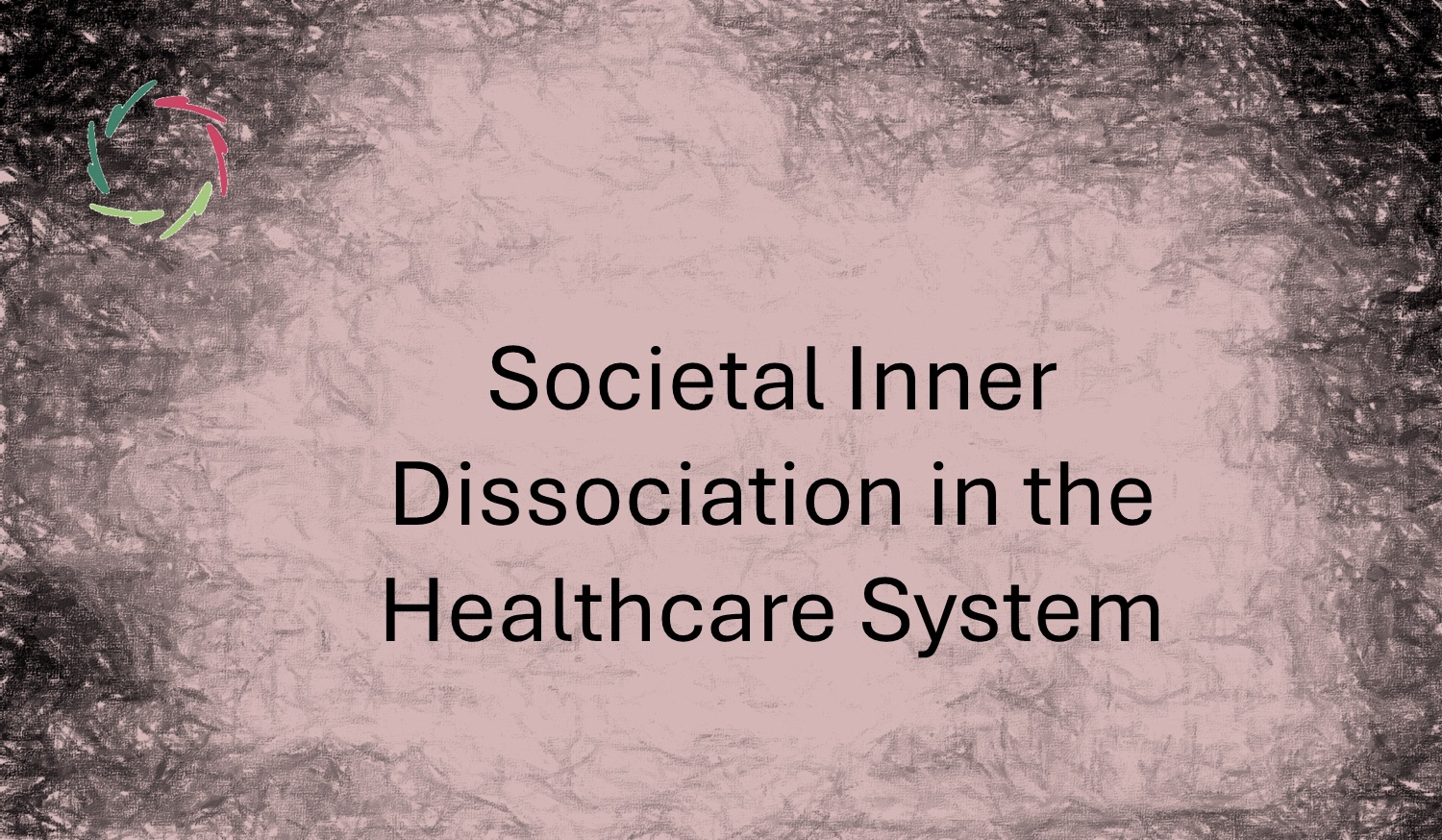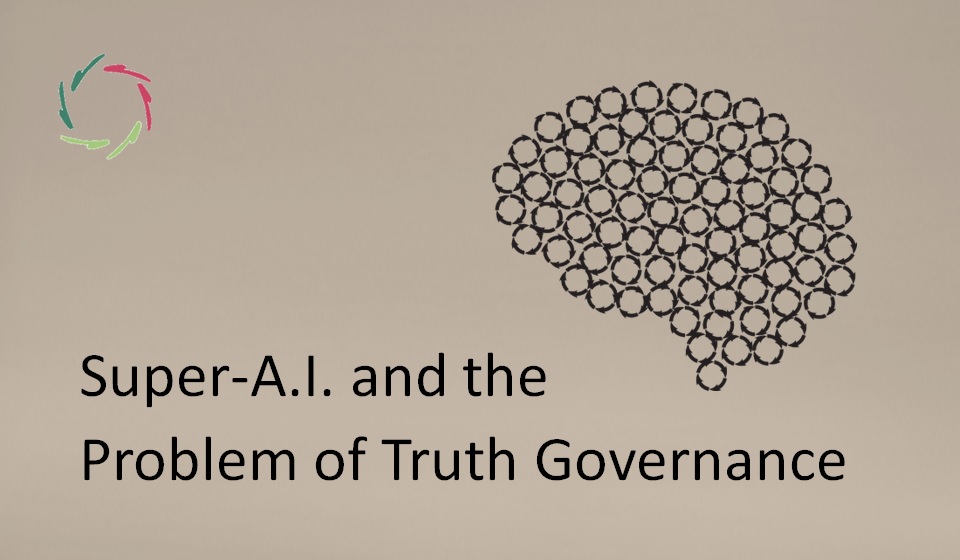Societal Inner Dissociation in the Healthcare System

The healthcare system often falls into the trap of depersonalization, where patients are treated as a collection of symptoms rather than as whole individuals. This exacerbates Societal Inner Dissociation (SID) by neglecting the deeper, holistic aspects of well-being.
This blog explores how SID in healthcare systems leads to fragmented care, patient alienation, and burnout among healthcare providers. It also discusses the potential of approaches that consider the interconnectedness of body, mind, and spirit. For a list of the series that serves as the basis for these conclusions, click here: *SID*. Please read the primary blog of this series for a basic understanding of Societal Inner Dissociation (SID).
The manifestation of SID in healthcare
One of the most significant manifestations of SID in healthcare is the depersonalization of care. In the quest for efficiency, patients are often treated as cases to be managed rather than individuals with unique experiences, emotions, and needs. This depersonalization undermines the therapeutic relationship between patient and provider, which is vital for adequate care.
The specialization within modern medicine, while leading to remarkable advances in specific areas, often contributes to the fragmentation of treatment. This siloed approach can lead to a disjointed experience for the patient, where no one is addressing the root causes of their health issues or considering how different aspects of their health are interconnected.
Patient alienation and dissatisfaction
In a system that prioritizes metrics and efficiency, patients often feel like they are just another chart to be reviewed. This feeling of anonymity can be deeply alienating. When healthcare becomes something that is done to them rather than with them, patients are more likely to disengage, leading to poorer health outcomes.
The experience of alienation and dissatisfaction in healthcare can have significant mental health repercussions. Patients who feel disconnected from their care providers and from the treatment process are more likely to experience anxiety, depression, and a sense of helplessness. This emotional distress can exacerbate existing health conditions and contribute to the overall burden of illness, creating a vicious cycle of poor health and dissociation. This way, the healthcare system unintentionally perpetuates SID.
Burnout among healthcare providers
SID also takes a toll on healthcare providers, who often experience their form of dissociation as a result of systemic pressures. The relentless demand for efficiency can lead to burnout as providers struggle to maintain the level of care and empathy that initially drew them to the profession. The focus on speed and volume leaves little room for the deep, meaningful interactions that are essential for both patient care and provider satisfaction.
For many healthcare providers, the loss of professional fulfillment is a significant consequence of SID. Providers may find themselves questioning the purpose and meaning of their work. Addressing this issue is crucial also for maintaining the quality of care within the healthcare system.
The potential of integrative health approaches
Integrative health approaches offer a promising alternative to the fragmented and depersonalized care that characterizes much of the current healthcare system. By incorporating practices such as mind-body medicine, integrative health models create a more comprehensive approach to healing. This addresses the root causes of illness and promotes a sense of connection and coherence for patients, reducing SID and enhancing overall well-being.
Central to this is the importance of strong, trusting relationships between patients and providers. When providers take the time to listen, understand, and engage with patients on a deeper level, it fosters a therapeutic relationship that is vital for effective care. By prioritizing these relationships, healthcare systems can create environments where patients feel seen, heard, and valued, counteracting the depersonalization that contributes to SID.
The potential of AURELIS and Lisa
In realizing a holistic care model, innovative tools like AURELIS and the support offered by Lisa can be instrumental. These tools are designed to help healthcare providers and patients alike reconnect with the deeper aspects of health and healing. By facilitating self-awareness, promoting inner strength, and fostering meaningful dialogue, Lisa can help bridge the gap between the emotional and physical aspects of care.
Whether through guiding providers in adopting a more compassionate approach or assisting patients in engaging more deeply with their healing process, Lisa represents a significant step towards a more integrated and humane healthcare system.
While avoiding unscientific practices, a holistic science approach that integrates body, mind, and spirit within the framework of evidence-based medicine can lead to more effective and Compassionate care. This approach acknowledges the complexity of human health and the need for care models that address all facets of the individual. By contributing to this holistic science, Lisa can support healthcare providers in developing and implementing practices that are both scientifically sound and deeply humanistic, reducing SID and enhancing the overall quality of care.
Recommendations for change
To create a healthcare system that truly heals, it is essential to make systemic changes that prioritize patient-provider relationships, holistic care, and the well-being of both patients and providers. This includes:
- Training providers: Offering training in empathy, communication, and integrative care approaches to help providers reconnect with the deeper purpose of their work.
- Restructuring healthcare delivery: Designing healthcare systems that allow for more time with patients, reducing the emphasis on speed and volume in favor of quality and connection.
- Encouraging patient involvement: Empowering patients to take an active role in their care, encouraging self-awareness, and promoting practices that support their overall well-being.
Envisioning a healthcare system that promotes overall well-being requires a shift in mindset and practice. This way, the healthcare system can evolve into a space that supports both personal fulfillment and collective progress, reducing SID and enhancing overall societal cohesion.
In short
Societal Inner Dissociation is a significant challenge within the healthcare system, leading to depersonalized care, patient alienation, and provider burnout.
However, by adopting integrative health approaches that consider the whole person – body, mind, and spirit – there is a profound opportunity to reduce SID and create a more humane, effective healthcare experience.
With tools like Lisa, the journey towards a more holistic, science-based approach to care is within reach, promising a future where healthcare truly heals on all levels.


